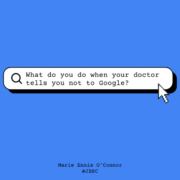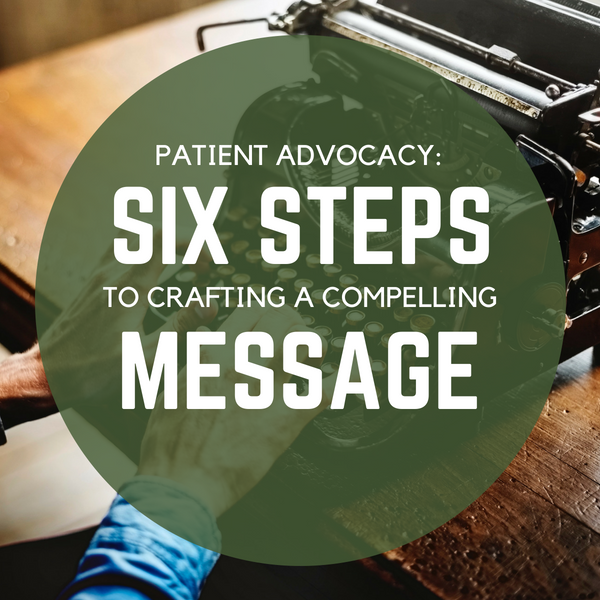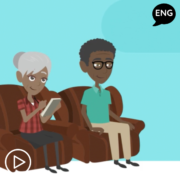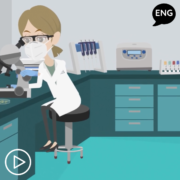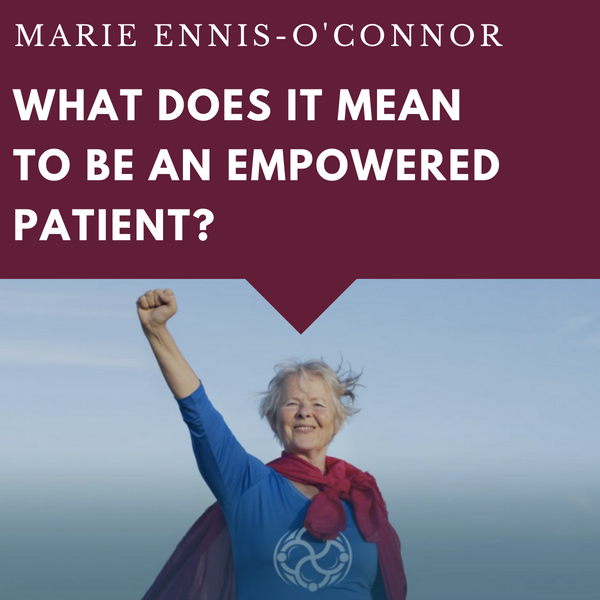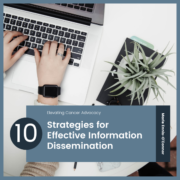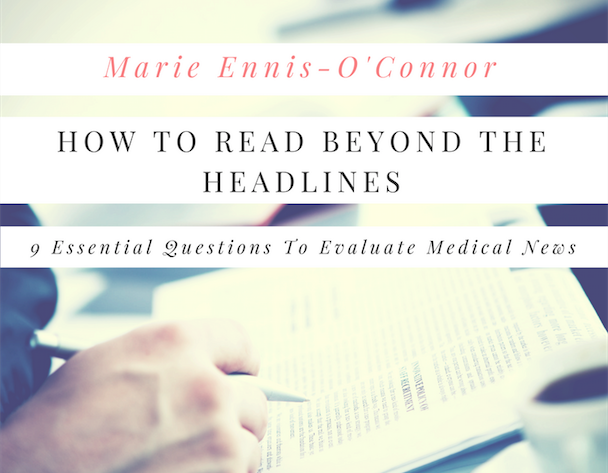What Do You Do When Your Doctor Tells You Not To Google?
What do you do when your doctor tells you not to Google? A recent Twitter conversation prompted this question, so I set out to answer it with the help of the patient advocate community.
Not surprisingly the first answer I received was firmly focused on the benefits patients found when they turned to the internet.
Why Do Patients Go Online?
Carolyn Thomas (@heartsisters) takes a pragmatic approach to searching for information online. “Personally, I wouldn’t even buy a coffee maker without checking with Google first to learn as much as I could about useful things like reliability, product features or where to get the best value,” she says. “And if my first stop is an online search for relatively minor things like a coffee pot, you can be absolutely sure that I’m going to ask Dr. Google about truly important things like troubling health symptoms.”
Jennifer Douglas (@mmejendouglas) agrees. “ Whenever a new situation comes up in my family or health I immediately take time to search the internet for more information,” she says.
Vanessa Carter (@_faceSA) calls the internet one of her “greatest allies as a patient who survived an antibiotic-resistant infection that nearly obliterated my face.” She describes how “without information about antibiotic resistance easily accessible to me on the internet in multiple realms including on websites, journal articles and social media, I do not believe I would have survived such an aggressive antibiotic-resistant infection which required me to participate equally in the management of it, both in and out of hospital settings, at home and even when I lay in an intensive care unit wondering whether my body would get through another day of excruciating pain.”
Many patients cite the reason they turn online is to be able to close the information gap that exists when they can’t get the information they need from their healthcare providers. As Vanessa explains, “when my doctor or alternative care provider like a nurse or pharmacist was not there to answer my wide-ranging questions such as how to manage my surgical wounds better, or how I could play a role towards improving my antibiotic adherence, and why it mattered to my infection, it was Dr. Google that filled that communication gap.”
Having said that, Vanessa also acknowledges “over time that not all the information I found online was constructive.” Terri Coutee (@6state) agrees. “The internet and Dr. Google are a highway of potential disaster unless you utilize the proper navigation tools to do a deeper dive into what is often a life-changing decision.”
Vanessa dealt with this by carefully evaluating the information and then “asked a willing doctor in my healthcare team to validate it,” adding, “I was the information seeker, and the doctor was my compass.” A nice way to convey that in general patients don’t see their information searches as a substitute for clinical advice, rather we still value traditional physician-patient consultations as important to our understanding of online health information.
Building Trust Through Information Sharing
Vanessa’s comment leads me to reflect on patients’ internet information seeking as an opportunity to strengthen trust between doctor and patient.
Research bears this out.
When researchers Sharon Swee-Lin Tan and Nadee Goonawarden systematically reviewed existing research on patients’ internet health information seeking and its influence on the patient-physician relationship, they found that it can improve the patient-physician relationship. [1]
According to the researchers, a majority of patients had felt more comfortable with information from health care providers because of their internet searches and felt more confident with the doctor’s advice. Interestingly, patients who shared online information felt that they received more attention from their physician, compared with non-sharers.
“I think that it is valuable for patients to be affirmed in their desire to better understand their unique diagnosis,” notes Jennifer. “When I brought my research to my doctor’s visits it enabled me to participate more fully in the discussion about my treatment. In one situation, I met with my radiation oncologist and brought up my research about the possibility of long-term nerve damage after radiation. She affirmed that it was a remote possibility, but was also able to share that in her professional career, she had never seen a patient have that particular side effect. I liked that she recognized that this could be a rare side effect, but was willing to share her years of experience with me during the conversation. I think that a collaborative approach between patients and health care providers can lead to better understanding and perhaps better quality of life for us, the patients.”
Barbara Jacoby (@letlifehappen) is concerned that the “don’t google it” instruction is an arrogant attitude that is deeply entrenched in the medical community. “One of the main reasons for my work is to improve the doctor-patient narrative in order to improve outcomes,” she explains. “And if my doctor says to me that I should not do my own research on Dr. Google, they are saying to me that they know everything and that tells me that I have the wrong doctor.”
Metastatic breast cancer patient, Ilene Kaminsky (@ilenealizah) recalls how her first oncologist “essentially told me to stay off Google. I felt very uncomfortable with her suggestion that she was the de facto source of information on my disease.”
MS patient, Robert Joyce (@A30MinuteLife) is also of the opinion that this attitude “doesn’t reflect well on any medical professional if they are telling us not to get information. It means, to me, they are not sure themselves and are afraid of being caught out. If healthcare providers want us, the patient, to trust them, we need to be an equal partner at the table. This builds trust.”
Ilene wishes health professionals would act as our partners in wellness. “And as our partners, it’s their responsibility to see to it that we have access to information,” she says. “Suggesting that we not do our own research, read the many books (or listen to audiobooks or podcasts) about our disease is not only ridiculously ignorant but also impossible. We’ll do it anyway, we just won’t come to them when we have questions for fear of reprimand. Not the healthiest outcome for either patient or physician.”
Doctors Google Too!
Not all doctors are averse to Dr. Google.
“In general, my experience has been with doctors who suggest checking something on the internet, even to the point my GP has looked it up, in my presence, to show me some information,” says Robert.
Male breast cancer advocate, Rod Ritchie (@malefitness) has this to say, “so tired of hearing don’t Google medical information. Obviously, my doctor is too, today we searched together for side effects that a drug might have.”
Carolyn, on the other hand, wishes her physician HAD gone online when she visited the Emergency Department with heart attack symptoms. “I now wish that the Emergency Department physician who misdiagnosed my cardiac symptoms had bothered to Google before misdiagnosing me and sending me home,” she says, “because I’m pretty sure that had he Googled central chest pain, nausea, sweating and pain down your left arm, Dr. Google would have come up with only one possible search result: myocardial infarction!!”
How Do Patients Wish Their Healthcare Providers Treat Online Information Searches?
As patients have better access to health information through the internet and expect to be more engaged in health decision making, traditional models of the patient-physician relationship need to be adapted to patients’ changing needs by incorporating their perspective into a relationship-centered medical paradigm.
“Suggesting that patients refrain from Googling is completely inappropriate and out of step with the times,” points out Nancy Stordahl (@nancyspoint). “Besides, by the time a patient lands in front of a doctor, she/he has likely already done a fair amount of Googling. Rather than suggesting no Googling, better advice might be to encourage patients to bring concerns, questions, or whatever that they uncover so such issues can be addressed or clarified. If a doctor told me to refrain from Googling, I’d wonder what she didn’t want me to find out. I’d head straight home and you guessed it, start Googling!”
So what can we do to address this disconnect between the fact that patients WILL search online for health information and the reality that by and large patients are discouraged from doing so?
“Physicians must by now realize that their patients are ALREADY online,” declares Carolyn. “Instead of warning them NOT to do what they’ve been doing for years, a more realistic response would be to give each patient a prescription-style list of credible websites to check if they do need more information.”
There was much agreement on this point.
“The medical profession must accept information is available all around us and we will see it,” Robert explains. “To ensure we see the right content, we must know the right places to look, and it is the healthcare professional who should be responsible for being our guide.”
Metastatic breast cancer patient Abigail Johnston (@amjohnston1315) makes clear that “no one is more motivated to research and learn and look for more treatment options than a patient with a serious or chronic illness. Rather than attempting to reserve all the knowledge for themselves, doctors and patients would be much better served by fostering a partnership in the best interests of the patient.”
Abigail recounts that “ironically this just happened with me and my doctor yesterday. I sent her the link to a study, she called me and we talked about how the trial might fit into my lines of treatment. She’d never heard of the study and added it to her repertoire. It’s Phase 1 now but may be helpful later. This is how it works when it works well!”
Conclusion
The patients I talked to were unanimous in the belief that supporting patients in their online information-seeking activities and guiding them to reliable sources of information builds a relationship of trust and empowers patients to take a more active role in their care. To quote Vanessa, “I’m thankful I had doctors who were willing to support me using any tools at my disposal to empower myself, even though they were far from perfect, because we had both almost lost hope, yet here I am, another e-Patient who survived because I had the right support to desperately seek out the answers I needed.”
[1] Tan SS, Goonawardene N Internet Health Information Seeking and the Patient-Physician Relationship: A Systematic Review
J Med Internet Res 2017;19(1):e9

A Stanford Medicine X e-Patient scholar, Marie Ennis O’Connor is an internationally recognized keynote speaker, writer, and consultant on global trends in patient engagement, digital health and participatory medicine. Marie’s work is informed by her passion for embedding the patient voice at the heart of healthcare values. She writes about the experience of transitioning from breast cancer patient to advocate on her award-winning blog Journeying Beyond Breast Cancer.

